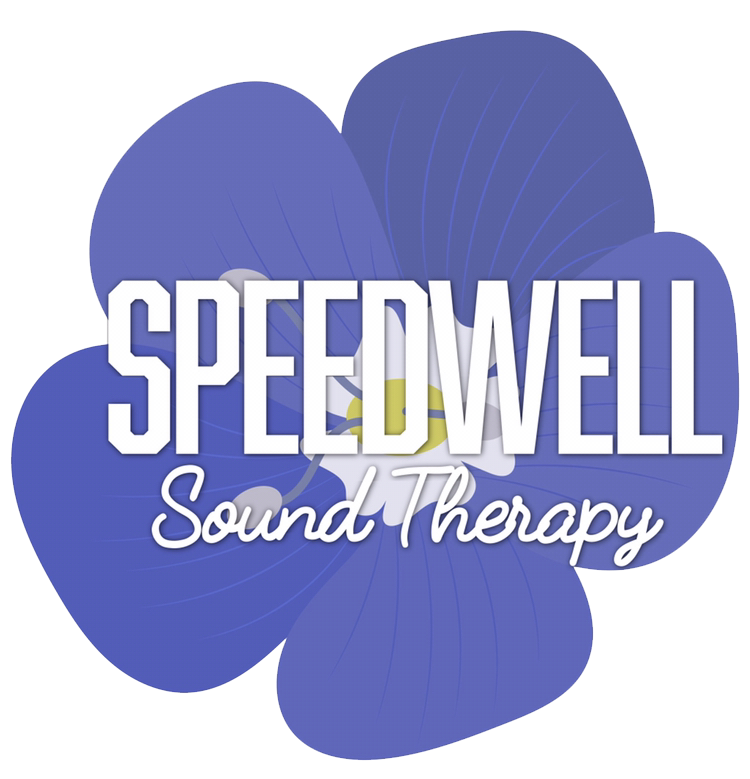FAQ
Q: What is sound ?
Sound is audible energy and occurs by particles of matter vibrating to create waves that are
both 'big' enough and of the right pitch for the human ear to hear.
Our brains must also be able to make sense of the vibrations and 'convert' them into sound
that we can understand.
Q: How do we treat different health conditions with sound therapy?
A:We don't treat symptomatically, i.e. there is no set or predictable way to work with a list of
conditions because we aren't working directly with the symptoms themselves, we are
working with personal process, i.e. the person's relationship to their symptoms and
exploring what impedes flow in their life (i.e. resistance)
Q: Is there a difference between sound healing and sound therapy?
Sound Healing uses sound in particular ways to improve health and wellbeing, Sound
Therapy is similar but the sound techniques are combined with reflective processing.
Q: Is sound therapy suitable for everyone ?
“Fundamentally, anyone and everyone can benefit from using sound in a therapeutic way.
However, there are certain conditions and circumstances that make certain forms of sound
work inappropriate at certain times and without proper medical guidance.
This is why it’s so important to choose a practitioner who adheres to a strict code of
conduct if you have any concerns for your own mental wellbeing." See the contraindications section of this website .
What does a typical session cost?
Price varies due to location , overheads, travel and set up costs and amount of persons attending. However a general group session can range between £13 and £18.00 per person.
Angela is always open to offering concessions and “pay what you can” events for participants on low incomes.
Q: How can sound work improve our wellbeing ?
Sound creates a connection between the sound itself, our consciousness and the outside
world.
Lyz Cooper and Clifford Sax developed a model that perfectly marries the human
mind-body-energy system and sound called the 5Rs’ model.
The 5Rs are resonance, resistance, responsibility, reflection and release, but they do not
necessarily occur in that order.
The 5Rs model is a valuable tool that helps us to realise we are, at any time, either
resonating with or resisting something.
Q: What is reflection?.
Reflection is the simple process of being able to step back from ourselves and listen
carefully to what we have to say.
Some people find it hard to reflect so a great tip is to view your reactions, thoughts and
feelings as if they are on a screen in front of you rather than being caught in them.
This will give you the space to be able to hear what you are telling yourself. If it helps, write
your thoughts down and look back at the end of the reflection session and read them back.
This is a really good way to really listen to what you have to say.
Q: What is the 5Rs process?
Introducing the 5R's process I work with ;
Resonance, Resistance, Release, Reflection and Responsibility you are invited to look within.
The 5Rs Model of Experiential Processing illustrates how we process our experience as human beings, and how we can understand our experience on all levels of our being: physical, mental, emotional & spiritual. Developed by Lyz Cooper & Clifford Sax of The British Academy of Sound Therapy - BAST , using this framework for reflection, alongside therapeutic sound can guide us towards healing and finding flow in life.
Resonance
Resonance signifies relationship and holds potential for self-recognition. Everything in the universe is in a constant vibratory state. Our interactions are resonance. In sound therapy it is the relationship between sound and our system (our physical, mental, emotional & spiritual bodies).
Resistance
Resistance signifies separation and holds potential for release. When in resistance we can feel stuck, triggered, or like we are holding back. By working through this separation we can move towards connection and wholeness.
Responsibility
Responsibility signifies empowerment and holds potential for transformation. When we take full responsibility for our own experience, we have the power to direct our energy and attention to our own potential to thrive.
Reflection
Reflection signifies self-awareness and holds potential for learning. The more we are able to reflect on our experience, the more we develop trust in our intuition.
Release
Release signifies liberation and holds potential for clarity. When we experience release, we are experiencing our energy moving. This may manifest as an emotional response, as insight, or a renewed sense of connection.
Q: What is an altered state of consciousness?
An altered state of consciousness (ASC) is when changes occur in an area of the brain
known as the dorsolateral prefrontal cortex.
ASC’s occur naturally every day with day-dreaming and sleep-dreaming but these are often
difficult to sustain.
Sound therapy can allow you to sustain a deep ASC by applying sound in a specific way. This is a state that helps many people to relax.
For more information on ASC read this blogpost ;
https://bit.ly/3aKL5aT
Q: What do you need to bring with you?
You should bring water a cosy blanket, mat , pillow for the sound and gong baths. All other items are supplied for other events such as Rythmn of Life and Soundscapes and drumming circles.

